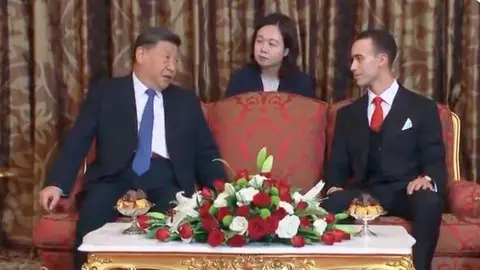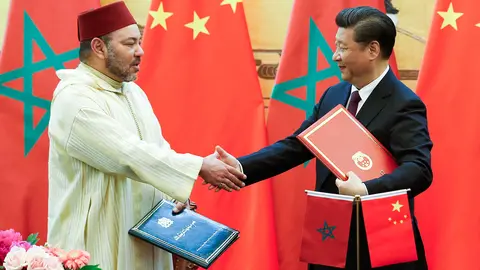Morocco-China: towards a new era of fruitful relations
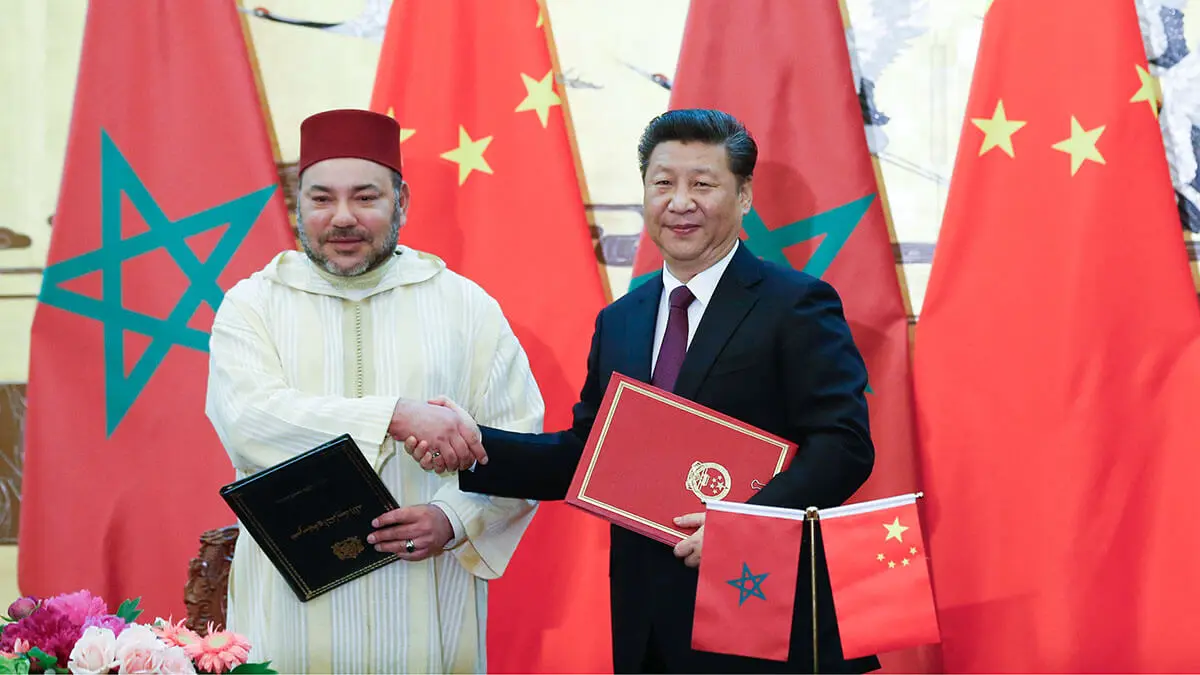
- China and Western Sahara: from neutrality to expected support for Morocco
- Morocco, China's gateway to the EU and the USA
- A new era of investment for successful South-South cooperation
- Connecting Casablanca to Shanghai: a promising momentum
- Innovative partnership 2025-2027 to tackle water scarcity
Since establishing diplomatic relations in 1958, Morocco and China have developed strong bilateral relations based on mutual respect, solidarity and trust in order to consolidate their commercial, economic and cultural partnerships.
The accumulation of diplomatic successes was crowned in May 2016 with the visit of King Mohammed VI to China, which resulted in the signing by both countries of the declaration of a strategic partnership that aims to strengthen relations between the Alaouite Kingdom and the People's Republic of China in the different areas of common interest.
Today, China is considered Morocco's third largest trading partner worldwide and the largest in Asia, which explains the growing interest of Chinese companies in the Moroccan market, particularly in the automotive, renewable energy, textile and agro-industry sectors.
China and Western Sahara: from neutrality to expected support for Morocco
At a political level, the relationship between Morocco and China is described as pragmatic and ambitious, as political analysts from both sides see it; underlining the complementarity that unites the two countries on the issue of development, in a multilateral framework based on respect for territorial integrity far from any interference in domestic politics.
In the case of the Western Sahara conflict, China, which is a permanent member of the United Nations Security Council, has never moved from the neutrality zone. It is true that China has not officially recognised the autonomy plan under Moroccan sovereignty, however, Beijing has not stopped expressing its sympathies with Rabat on the territorial issue. Proof of this is that the Polisario Front and the so-called Sahrawi Arab Democratic Republic were not invited to the summit of the Forum on China-Africa Cooperation.
Given the historic decision of the USA in favour of the Moroccan autonomy plan, it is hoped that China will follow in Washington's footsteps over the next two years. The expected Chinese position will be realised on the ground through the inauguration of a consulate in the city of Laayoune as an important diplomatic endorsement of the territorial integrity of the Kingdom of Morocco.
This step will form part of the international trend towards recognising the effectiveness of Morocco's initiative for a definitive solution to the dispute over Western Sahara, which will create new horizons for cooperation and a promising future for the region under the leadership of the Alawite sovereign.
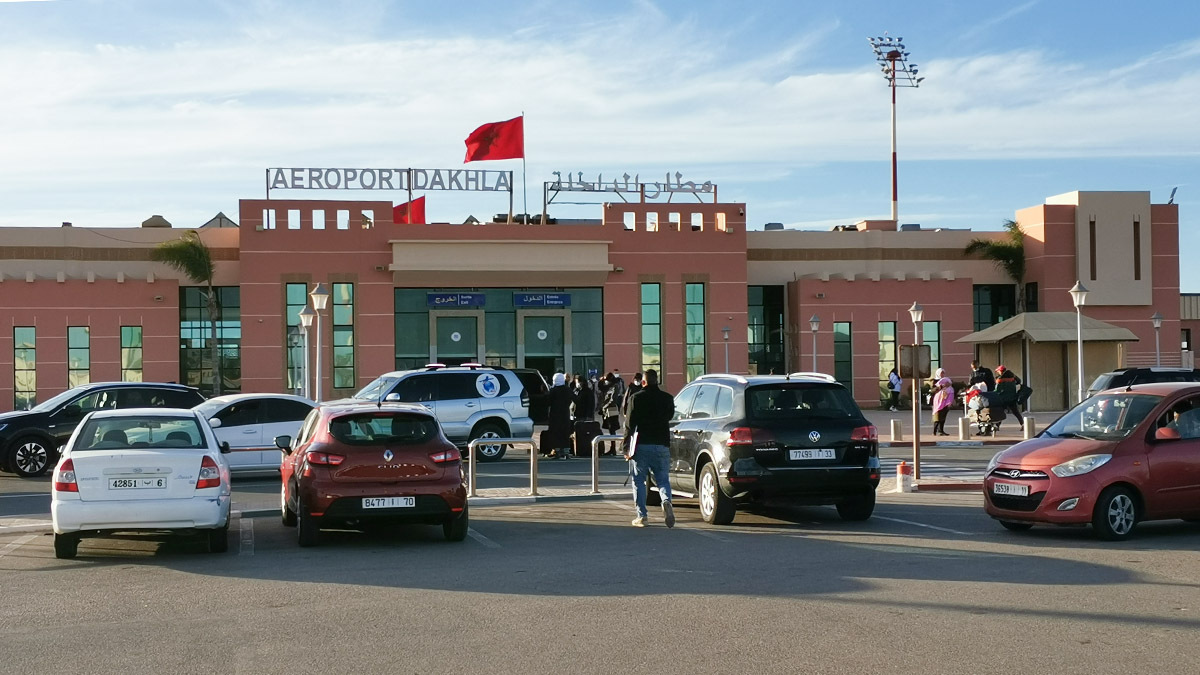
Morocco, China's gateway to the EU and the USA
Morocco is the North African country that enjoys a geographical position that allows it to be a key player in intercontinental relations. For this reason, commercial exchanges between Rabat and Beijing have intensified in recent years; as China sees in Morocco the possibility of circumventing the measures aimed at excluding its products from the US and European markets. So the Morocco, EU and US triangulation is strategic for both Morocco and China.
In this sense, Morocco, at the level of its foreign policy, although it counts on its traditional partners, which are France, Spain, the United States; in addition to the recent association with Israel, does not lose sight of the importance of diversifying its alliances, weaving fruitful bilateral relations not only with China but also with Russia.
Among the reasons that are pushing Chinese companies to focus on Morocco, the free trade agreements with the United States and the European Union stand out. The primary objective of these companies is to access the US and European markets and take advantage of the Inflation Reduction Act, an ecological reform plan approved by the US Senate in 2022, which provides tax credits for batteries manufactured with components from countries with which the United States has a free trade agreement, as is the case with Morocco.
In less than fifteen years, Morocco has become the leading car manufacturer in Africa, creating a very favourable automotive ecosystem and high-quality infrastructure such as the port of Tangier Med, less than an hour from Spain and five days from the American coasts.
This connectivity is strengthened with the Atlantic coast thanks to the port of Dakhla, on the one hand. On the other hand, the role of the Canary Islands as a ‘bridge of cooperation’ between China, Morocco and Europe stands out. This is a vision that was consolidated with President Xi Jinping's visit to Rabat on 21 November.
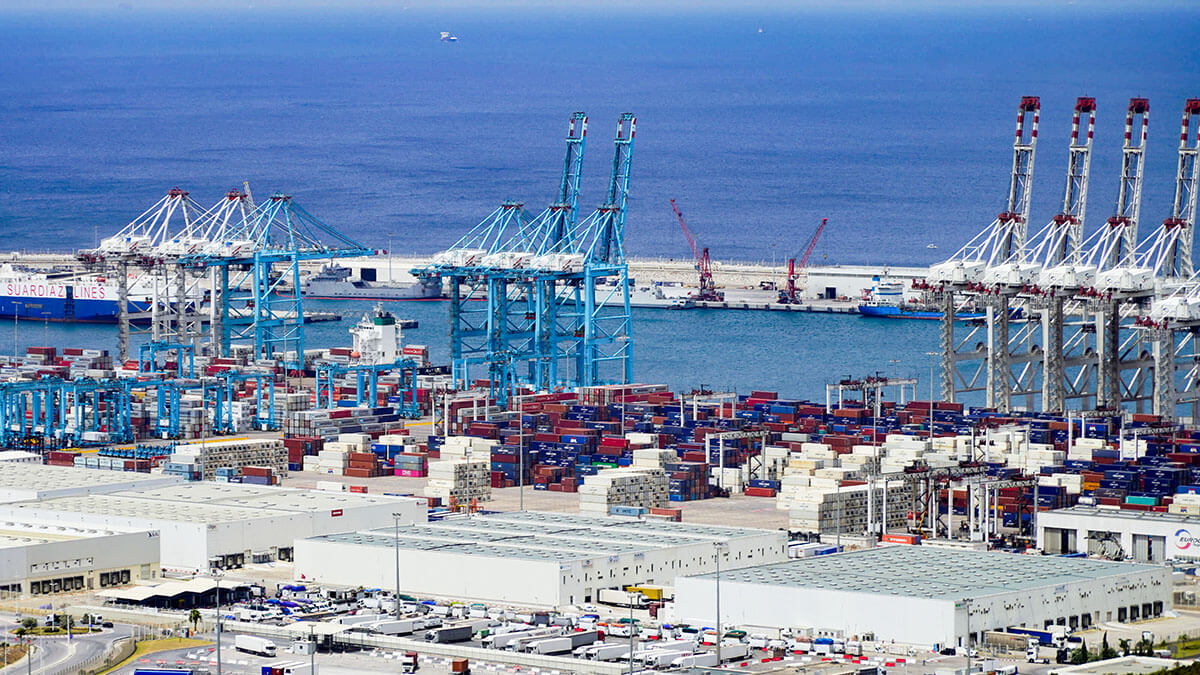
A new era of investment for successful South-South cooperation
China has become one of the most active countries in terms of foreign investment on the African continent and, thanks to its position as a gateway to Africa and its access to the European market, Morocco has become a key partner of the Belt and Road Initiative (BRI) when it was the first country in North Africa to sign up to a plan for its implementation in 2022.
Trade between the North African country and the Asian republic reached 8 billion dollars in 2023. This makes the Asian giant, according to China Daily, Morocco's largest trading partner in Asia and its third largest worldwide, with investments in infrastructure, energy, health, education and tourism.
In parallel, the British magazine The Economist ranked the Kingdom of Morocco in August 2023 among the top five countries targeted for Chinese greenfield investments through direct deployments and new facilities. Indeed, the company CNGR, in partnership with the fund Al Mada, and the giant Gotion could inject nearly 4 billion dollars into Morocco.
The growing cooperation between the two countries is bearing tangible fruit in the form of a wave of Chinese investment:
- Mohammed VI City of Tangier Tech is an emblematic example of Sino-Moroccan cooperation. The smart city will host Chinese companies, among others, for projects with high technological value in the automotive, electronics and robotics sectors.
- Chinese participation in the construction of the Noor solar complex in Ouarzazate.
- The civil engineering contract between the Moroccan National Railways Office and the Chinese group Overseas Engineering for the extension of the high-speed train line between Kenitra, Marrakech and Agadir.
- The Chinese company Zhenhua Heavy Industry will participate in the development of the port of Safi.
- The engineering company China Electronics Corporation has announced that it will build the first cobalt sulphate plant in Morocco by 2025, with an estimated annual production capacity of 5,800 tonnes. It is one of Managem's flagship projects, with production to be supplied to Renault, the German group BMW and the Anglo-Saxon trading company Glencore.
- The inauguration, in 2025 in Tiznit, of a copper plant essential for electric motors and recharging stations.
- The inauguration of Citic Dicastal in Kenitra, a company specialising in the manufacture of aluminium wheels, as one of the most important Chinese investment projects in Morocco.
- The opening of other Chinese groups such as BTR Schenzhen or Gotion High-Tech in Rabat
Within the framework of its foreign policy, Morocco is committed to strengthening South-South cooperation with African, Arab, Latin American and Asian countries: given its strategic position as a gateway to West and Central Africa.
In this context, Rabat and Beijing share a common aspiration for ‘a fairer world, with greater solidarity; advocating for peace and security as one of the priorities for the development of the African continent.
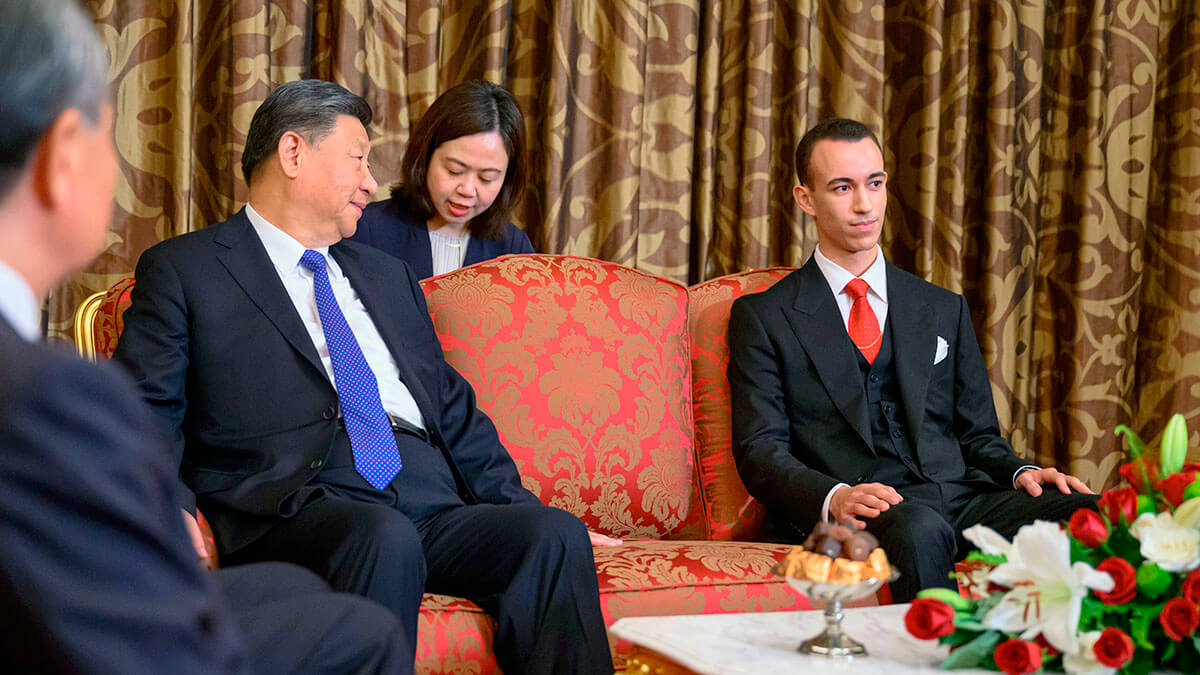
Connecting Casablanca to Shanghai: a promising momentum
Since Morocco abolished the visa requirement for Chinese citizens visiting the Kingdom in 2016, the number of Chinese tourists has increased from 118,000 in 2017 to 200,000 in 2019.
In January 2025, another measure was launched to encourage the Chinese to visit the North African country. China Eastern Airlines and the Moroccan company Royal Air Maroc launched two new airlines connecting the cities of Shanghai and Beijing from Casablanca with a frequency of three days a week.
The new Casablanca-Shanghai route currently represents a promising momentum that consolidates Morocco's appeal and increases the curiosity of the Chinese, with constantly increasing numbers.
Given that 80% of travellers on the Shanghai-Marseille-Casablanca flight land in Morocco and are Chinese tourists wishing to visit the country, eliminating the stopover in Marseille and reducing the flight time will be the next step in reaching more than 100,000 Chinese tourists in 2025 through direct flights alone, not counting the 200,000 visitors who arrive in the Kingdom on indirect flights.

Innovative partnership 2025-2027 to tackle water scarcity
In order to address the water scarcity crisis and promote sustainable development, both countries are committed to finding innovative solutions for the efficient management of water resources by improving infrastructure and water conservation practices in Morocco.
China, known for its advanced water management systems, will provide expertise and support to Morocco. The collaboration will also facilitate the exchange of best practices and the development of sustainable water policies.... aims to improve its water security, increase agricultural productivity and promote sustainable urban development.
The partnership will focus on several key areas:
- Developing advanced water treatment facilities, guaranteeing the supply of clean and safe water to communities
- Minimising losses and maximising efficiency in water distribution
- Adopting water-saving technologies and practices, especially in the agricultural sector, which is a major consumer of water
- Improving access to water and security for millions of people
With a combination of technological advances and knowledge sharing, Morocco and China are in a position to have a significant impact on water security and sustainability.

